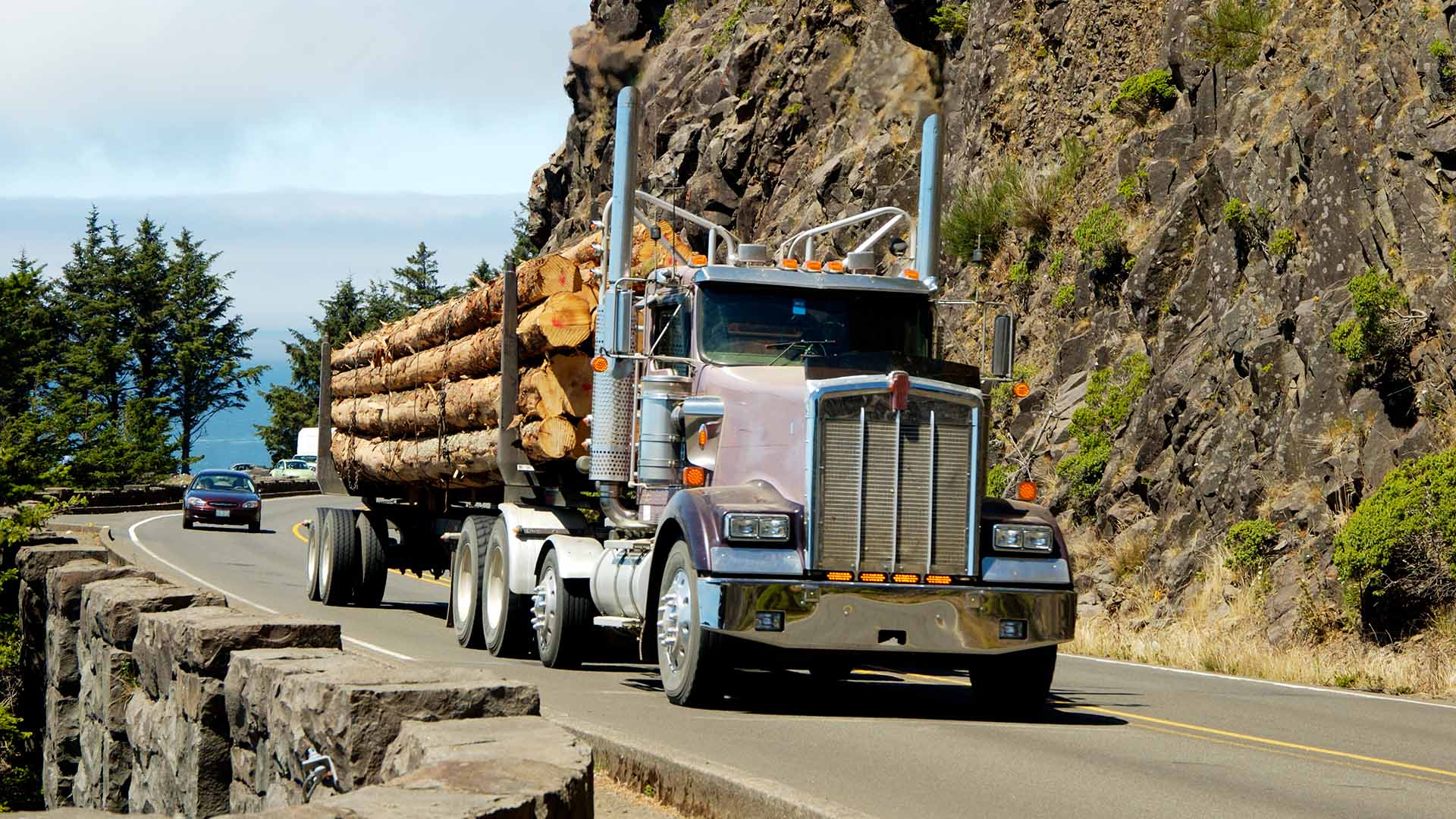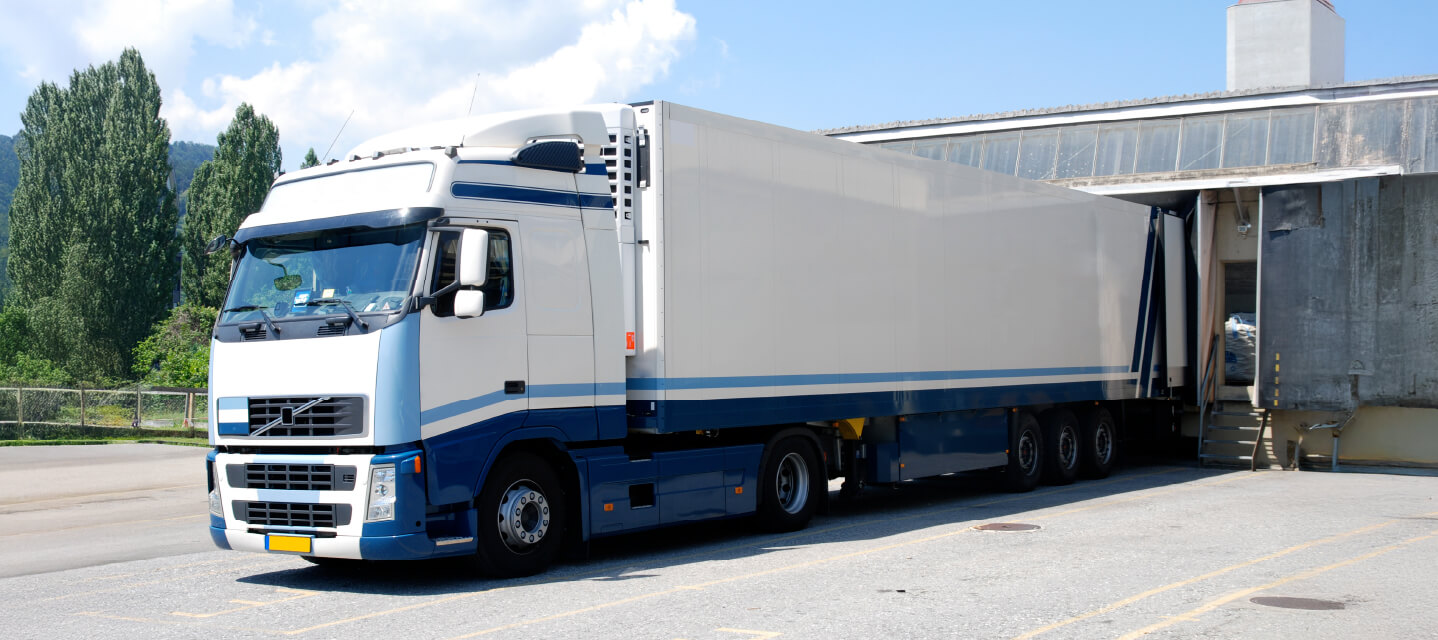Electronic logbooks: Unlock the best fleet solution for trucking
eLogs are a game-changer for the trucking industry. Read how you can use ELDs and vehicle data for better productivity, safety and efficiency.
By Geotab Team
May 29, 2025

Key Insights
- An electronic logbook is a technology application that digitizes driver logs to record hours of service (HOS) and other critical data.
- Most commercial motor carriers and drivers who must maintain records of duty status under federal HOS regulations use electronic logbooks.
- ELD software synchronizes with the vehicle’s engine control module to ensure accurate, tamper-resistant HOS tracking and simplify compliance monitoring.
Since December 2017, the Federal Motor Carrier Safety Administration’s (FMCSA) ELD mandate has required certified electronic logbooks for most commercial vehicles — and for good reason. Capturing data from on-duty, driving and rest periods can help drivers prevent a variety of deadly accidents.
For example, driver sleepiness causes roughly 1 out of every 5 fatal car collisions, making fatigue a leading contributor to roadway death. Electronic logbooks can help avoid these accidents by enforcing rest breaks and reducing fatigue risk.
Learn more about electronic logbooks, how they differ from ELDs and what benefits they offer. We will also share some tips on selecting the right system for your fleet.
What is an electronic logbook?
An electronic logbook, or eLog, is a software application that allows drivers to record their duty status, driving hours and other required information. It automatically captures data on driver status using a connected IoT device that ties into the vehicle. This device is called an electronic logging device (ELD).
Here’s what you can capture with an eLog for truckers:
- Date
- Time
- Location
- Engine hours
- Vehicle miles
- Driver identification
- User authentication
- Vehicle
- Carrier name
eLogs also allow drivers to transfer the stored information directly to enforcement officers during roadside inspections. Electronic logbook software costs vary widely based on features, industry focus and deployment models.
eLogs vs. ELDs
People often use eLogs and ELDs interchangeably, but there’s a technical difference.
- eLogs refer broadly to digital systems that replace traditional paper logs for recording a driver's duty status and hours of service (HOS). These can range from simple mobile applications requiring manual input to more sophisticated systems.
- ELDs are specific hardware devices that automatically record driving time by synchronizing directly with a vehicle's engine. ELDs also provide accurate and tamper-resistant HOS tracking.
In short, ELDs are hardware devices that capture and record eLog data; eLogs are software. While they aren’t the same thing, one can be used as a substitute for the other.
Key ELD features
One of the most useful features of ELDs and eLogs is their seamless integration with your existing fleet management software. They also offer:
- Automated HOS tracking by recording driving time, on-duty, off-duty and rest periods
- Real-time GPS tracking to enable efficient dispatching, route optimization and timely responses to unforeseen events
- Compliance with the ELD mandate by adhering to FMCSA regulations
- ELD exemptions management by identifying and managing drivers or vehicles operating under the short-haul exemption or using paper logs for eight days or fewer in 30 days
- Driver behavior monitoring to track driving patterns, including speed, hard braking and rapid acceleration
How to use an electronic logbook system
ELDs ensure compliance with HOS regulations. Proper use of ELDs involves specific steps before, during and after driving. Adhering to the following procedures will help you maintain accurate records and remain compliant with federal regulations.
1. Before you start driving
Begin by logging into the ELD system using your unique credentials. Sync the device with the vehicle’s engine and ensure it functions correctly. Verify that all required ELD documentation, including user manuals and malfunction guides, is accessible in the vehicle.
Conduct a thorough pre-trip inspection and record any defects or issues in the ELD. Set your duty status to "On-Duty, Not Driving" before starting the vehicle. This helps you log all activities accurately from the beginning of your shift.
2. While driving
Once you cross the speed of five miles per hour or more, the ELD will automatically switch your duty status to "Driving." You don’t need to make manual entries during this time, as the ELD records driving time automatically.
If the vehicle remains stationary for five minutes, the ELD will prompt you to confirm your status. If drivers don't respond within one minute, it will automatically switch to "On-Duty, Not Driving."
Use the ELD to log any changes in duty status, such as breaks or fueling stops, and record all activities accurately.
3. Ending the workday
At the end of your shift, set your duty status to "Off-Duty" and complete a post-trip inspection. Note any issues in the ELD. Then review your log for accuracy and certify it to confirm all entries are correct.
Also, ensure the ELD has successfully transmitted the day's data to your carrier. Regularly reviewing and certifying your logs helps maintain compliance and clearly records your driving activities.
Benefits of eLogs
eLogs and ELDs are essential tools for modern fleet management. They offer real-time data and automation that enhance safety, boost productivity and reduce operational costs. Here is how they make it happen.
Safety
eLogs practices promote driver safety by helping them adhere to HOS regulations. They automatically track driving hours and rest periods, helping prevent fatigue-related incidents.
Beyond compliance, eLogs monitor driving behaviors such as speeding, hard braking and rapid acceleration. You can use this data to identify risky patterns and implement targeted driver training and fleet safety programs.
Productivity
Transitioning to electronic logbooks streamlines administrative tasks by eliminating manual paperwork. Drivers can complete pre- and post-trip inspections using digital checklists. They can instantly communicate issues (if any) to maintenance teams, reducing vehicle downtime.
You can use real-time data to make informed decisions and optimize routes and dispatching. This agility enhances operational efficiency and ensures timely deliveries.
Cost saving
Implementing eLogs can lead to significant cost reductions. Monitoring fuel consumption and identifying inefficient driving behaviors can help your fleet achieve better fuel economy. Additionally, predictive maintenance scheduling based on real-time data helps prevent costly repairs and extends vehicle lifespan.
There’s more: eLogs minimize the risk of regulatory fines by maintaining compliance with HOS rules and reduce the administrative overhead associated with paper log management.
Choosing the right electronic logbook for your fleet
If you operate in Canada and need help selecting the right ELDs or eLogs for your fleet, here are some tips that might help:
- Start evaluating devices now: Don’t wait until weeks before the mandate takes effect to choose which device(s) to use in your fleet. Start looking at options now.
- Choose the best implementation time: Schedule ELD implementation during a slower operational period. This ensures greater availability of vehicles and drivers, allowing for a smoother installation and training process. Comprehensive training is a must for compliance and may take several weeks.
- Determine an implementation schedule: The duration of ELD rollout varies based on fleet size, location, data integration, staff training and unit installation. Plan early and choose an implementation time that minimizes disruption.
Manage fleet compliance with Geotab
Our ELD compliance solution automates HOS tracking by synchronizing directly with your vehicle telematics. Through customizable dashboards, you get accurate, tamper-proof HOS records and comprehensive ELD reports.
Other features, like built-in driver reminders for log in/log out, real-time alerts when drivers approach HOS limits and seamless log export, simplify fleet compliance and audit readiness. Our solution also offers robust driver behavior monitoring so you can build an effective fleet safety program. Schedule a demo now to know more!
Subscribe to get industry tips and insights
Frequently Asked Questions
An ELD is a FMCSA-mandated hardware device connecting directly to a commercial vehicle’s engine control module to record driving time and duty status for accurate HOS compliance. ELDs were required under the FMCSA rule effective December 18, 2017, replacing older AOBRD systems to standardize digital logging across fleets.
ELDs automatically capture data elements including date, time, location information, engine hours, vehicle miles and identification information for the driver, vehicle and motor carrier. They also record status changes — on-duty, off-duty, driving and not-driving. Some devices further log safety events such as harsh braking and collisions.
An ELD is a certified, engine-connected device meeting FMCSA technical standards, whereas eLog more broadly refers to any electronic log software. eLogs can include manual-entry apps that do not satisfy the ELD rule.
A compliant ELD must be self-certified by its manufacturer and listed on the FMCSA’s official registered ELD list after passing all required technical testing. You can verify compliance by checking the FMCSA ELD registry — devices removed from this list indicate non-compliance and should no longer be used for HOS recording.
The Geotab Team write about company news.
Table of Contents
Subscribe to get industry tips and insights
Related posts

Enhancing winter road maintenance with postseason materials usage analyses
June 20, 2025
6 minute read

Fuel efficiency techniques every truckload carrier should know
May 30, 2025
3 minute read

CARB compliance made easy: 10 ways Geotab simplifies emissions reporting
May 12, 2025
1 minute read


IRS mileage log requirements for 2025 [free downloadable template]
May 2, 2025
5 minute read

What is CARB compliance? A guide on the CARB regulations and certification process for fleets
April 29, 2025
4 minute read